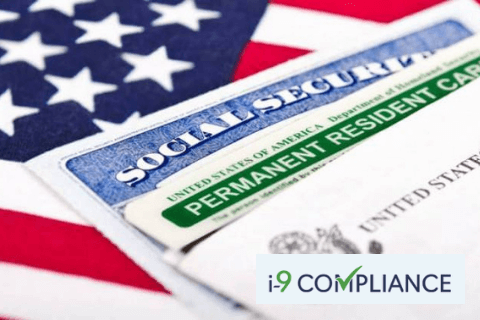A New Immigration Bill Could Make It Easier for Immigrants to Acquire Green Cards

The U.S. Department of Homeland Security (DHS) recently announced proposals that would allow immigrants who were receiving U.S. benefits to more easily obtain a green card. This U.S. immigration public charge rule would be a big change from the administration policy of the previous administration, which was established in 2019, and is no longer in effect.
The Department of Homeland Security Stated that this new proposal will decrease the number of benefits that can be used against an immigrant should they apply to become a permanent resident of the United States. This would include benefits such as Medicaid or food stamps.
According to the secretary of the DHS, “Under this proposed rule, we will return to the historical understanding of the term ‘public charge,’ and individuals will not be penalized for choosing to access the health benefits and other supplemental government services available to them.”
Public Charge Rule
The public charge rule has been part of U.S. immigration law for a long time and refers to the fact that legal immigrants that are considered likely to need assistance from the U.S. government can be denied U.S. immigrant status.
In the previous administration, a new public charge rule was introduced in 2019, in which the definition of public charge was expanded. The expanded definition of the rule stated a public charge was any immigrant who received one or more designated public benefits for a period of more than 12 months in any three-year period. If an immigrant chooses to apply for permanent residency in the United States, it is taken into consideration whether or not they are a public charge.
In the previous administration, the benefits that were considered when determining whether or not an immigrant was a public charge were cash assistance under Temporary Assistance for Needy Families (TANF), the Supplemental Nutrition Assistance Program (SNAP), most forms of Medicaid, and Supplemental Security Income (SSI). The previous administration expanded the number of benefits that could be considered when determining if someone is a public charge over what was included in the interim guidance that was issued in 1999. This administration claimed to be protecting U.S. citizens from bringing more public charges into the country and making sure immigrants entering the country were self-sufficient.
However, the current administration, along with immigration advocates, believe the rule put in place by the previous administration makes immigrants afraid to access benefits for fear of jeopardizing their green card applications. The current administration is still considering benefits, such as long-term institutionalization at government expense, TANF, SSI, and local cash assistance for income maintenance when determining whether someone is a public charge. However, other benefits, such as the Children’s Health Insurance Program (CHIP), SNAP/food stamps, housing benefits, transportation vouchers, and most Medicaid benefits, will not be considered.
Additionally, it will not consider pandemic assistance such as tax credits, disaster assistance, government pensions, Social Security, or any benefits a person earns by paying into the system. Asylum seekers, Temporary Protected Status (TPS) recipients, and refugees need not pass a public charge test according to current immigration laws.
The public charge rule the current administration is proposing is intended to make the United States more welcoming to immigrants.
Learn more about automating your employment eligibility verification and ensuring compliance with I-9 Compliance.